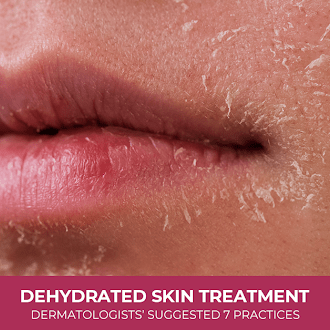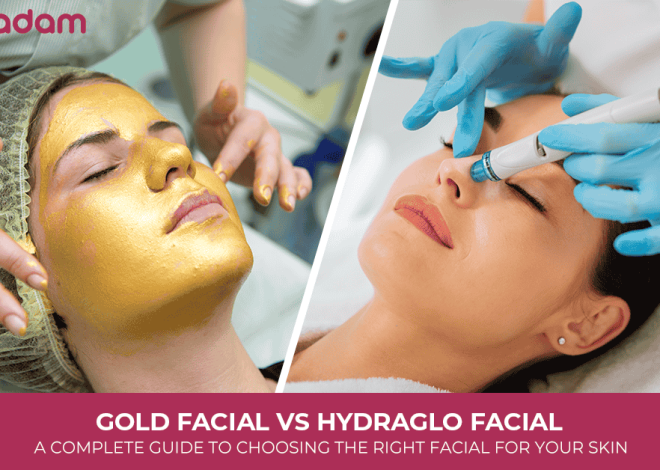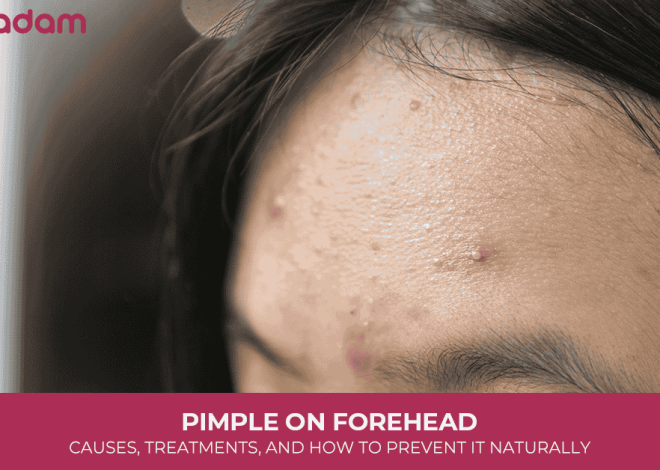
Dehydrated Skin Treatment: Dermatologists’ Suggested 7 Practices
Are you dealing with rough, dull skin that looks less elastic than usual? Or you’ve noticed your fine lines looking more pronounced than they normally do. Chances are you’re dealing with dehydrated skin.
Unlike dry skin, which implies a lack of oil in the skin, dehydrated skin is a temporary skin issue where your skin fails to produce enough water in the uppermost layers.
This water loss may disrupt your skin’s barrier function, giving rise to uncomfortable feelings such as tight, dry, and itchy skin.
This blog on dehydrated skin treatment will extensively cover everything you need to know about what exactly dehydrated skin is, including its causes and symptoms.
Plus, you will learn the top expert-backed tips and practices on how to treat and prevent dehydrated skin that will leave your skin feeling visibly restored, plumped, and nourished
Table of Contents
What is Dehydrated Skin?
Before exploring the tips and tricks on how to treat and prevent, let’s get the basics right on dehydrated skin meaning.
Dehydrated skin is a temporary skin situation when the skin lacks adequate water in the uppermost layer of your skin, causing moisture loss and the appearance of flakiness, fine lines, and dullness, mostly accompanied by sensitivity. This impacts your overall skin tone and complexion.
5 Characteristics of Dehydrated Skin

Five characteristics of dehydrated skin include a dull complexion, increased sensitivity and itchiness, the prominent appearance of fine lines, dark under-eye circles, and sunken eyes.
Here are five characteristics of dehydrated skin:
1. Dull or Lacklustre Complexion: Water is essential for healthy skin cell function, so a lack of it can make skin appear pale, dull, and uneven, losing its natural glow.
2. Increased Sensitivity: Dehydrated skin becomes more vulnerable and may react poorly to products or environmental factors, leading to redness, burning, or irritation.
3. Prominent Fine Lines: When skin lacks water, it loses elasticity and plumpness, which can make even small lines and wrinkles appear more noticeable.
4. Dark Under-Eye Circles: Dehydration can affect blood circulation, making dark circles under the eyes more visible and prominent.
5. Itchiness: A common symptom is a persistent feeling of itchiness, often accompanied by a feeling of tightness or tenderness to the touch.
More Information For You: Blackness Around Mouth
How to Treat Dehydrated Skin? 7 Expert-Backed Practices to Follow
Here are some of the simplest, effective, and expert-backed practices on how to combat dehydration problems :
1. Drink more water
As the water content depletes in our bodies, it dehydrates the inner skin layer and makes the skin turn dry and also pale. Thus, drink at least 2 liters of water daily to treat skin dehydration.
Additional Tips to Stay Hydrated
- Make it a habit to carry water bottles everywhere and anywhere you go. This helps replenish water in your skin and body.
- Eating hydrating fruits and vegetables, such as watermelons, oranges, and cucumbers helps you stay internally hydrated.
2. Humidifier
This simple device can effectively tackle dehydrated skin and is especially suitable if you live in a dry climate or mostly in air-conditioned spaces.
Humidifier benefits to know about
- Humidifies the environment, thereby increasing the moisture content in the air and preventing your skin from turning drier.
- Effectively prevents water loss from the skin and also accentuates the intensity of skincare routines.
3. Gentle cleansing
Use a gentle cleanser that promises to remove impurities without stripping the skin of its natural moisture.
Additional Tip
- Look for cream-based cleansers that help clean the impurities from pores and are highly recommended for dehydrated skin.
- Always look for products containing panthenol, aloe vera, and even chamomile, known for their healing powers.
4. Moisturize right after cleaning
For maximum moisture preservation, apply the moisturiser on damp skin right after cleansing. It will help retain water in your skin and maintain the softness level that you need.
Recommended routine for better effects
- After cleansing, pat your skin dry, leaving behind a little damp effect.
- Then, gently apply hydrating serum to improve skin moisture.
- Complement with a good external moisturizer or an overnight hydrating mask.
5. Always remember sunscreen
Sun exposure may further dehydrate the skin, so protecting it is important to maintain hydration levels.
Recommended routine
- Select a broad-spectrum sunscreen with an SPF of at least 30 and apply every morning.
- Reapply every two hours if you remain outdoors for a longer duration.
- Those with sensitive skin, should use a physical sunscreen with zinc or titanium dioxide.
6. Avoid harsh cleansers
Using strong cleansers or soaps strips your skin of its natural oils. This may worsen dehydration further.
Pro tips
- Look for fragrance-free, gentle cleansers that help maintain your skin’s natural PH balance and moisture level.
- Check labels thoroughly and avoid products containing alcohol or sulfates, as these may dry out the skin.
7. Avoid hot showers
While long hot showers may feel relaxing, they are not good for dehydrated skin. These showers break down your skin’s lipid barrier, causing the water to escape.
Preventive measures to follow
- Stick to lukewarm showers and decrease the time to 5-10 minutes.
- After a bath, pat dry your skin using a hot towel rather than harshly rubbing it.
Best Products and Ingredients for Dehydrated Skin Treatment
Key products and ingredients to look for in your dehydrated skin treatment journey can be highlighted as:
| Ingredients or products | Uses/benefits |
| Hyaluronic acid | Keeps your skin cells hydrated for long hours and thus manages dehydrated skin effectively. |
| Ceramides | Supports the natural skin barrier, for better moisture retention in the skin cells. |
| Glycerin | Topically applying this ingredient brings moisture from the environment to your skin, treating dry and rough patches. |
| Squalane | As a natural antioxidant and anti-inflammatory substance, it boosts hydration for long-lasting skin repair and moisturization. |
| Lactic acid | A gentle AHA that softly exfoliates your skin while keeping it deeply nourished and hydrated. |
| Target serum | A targeted serum enriched with vitamins and ingredients helps to replenish and recharge your skin’s moisture levels. |
| Weekly face mask | Face masks enriched with hydrating ingredients boost your skin’s moisture levels for a plumper, smoother, and suppler complexion. |
| A good night cream | A good night cream aids your skin’s natural repair process, which helps keep the dehydrated skin healthy and radiant. |
Effective Do’s and Don’ts to Care for Dehydrated Skin

In addition to the aforementioned expert-backed practices, here are some dos and don’ts to ensure long-lasting hydration and treat dehydrated skin:
Do’s
- Need for professional skin treatments: Apart from the at-home skincare practices, professional treatments like hydrafacial, mesotherapy, chemical peels help keep your skin rejuvenated and hydrated.
- Do take time for rest & relaxation: Stress makes your body produce cortisol, which breaks down collagen and increases water loss. So, indulge in stress-reduction activities for healthier skin.
Don’ts
- Don’t skip nighttime skincare routines: Regular nighttime skincare is one of the biggest dehydrating do’s to help you wake up with healthier, softer skin.
- Avoid sugary drinks and processed food: Too much sugar, like soda, sports drinks, and processed food, may cause inflammation and worsen dehydration. Add nourishing foods to your diet as part of a dehydrated skin treatment to get glowing skin.
Conclusion
Therefore, dehydrated skin treatment does not have to be hard. Follow the 7 best practices and other do’s and don’ts of skin dehydration to keep your skin glowing and healthy. You can easily take care of your skin by understanding and implementing these simple strategies.
FAQs
Can dehydration cause itchy skin?
Yes, dehydration can cause itchy skin. When your body lacks sufficient water, your skin loses its moisture, leading to dryness, flakiness, and an increase in sensitivity, which results in an urge to scratch.
What does dehydrated skin look like?
Dehydrated skin often looks dull, tired, and feels tight and itchy, especially after washing. It can also appear rough, with flaky patches, and may show more noticeable fine lines and dark circles around the eyes.
What is the fastest way to fix dehydrated skin?
To fix dehydrated skin fast, drink plenty of water and eat water-rich foods, but avoid caffeine and alcohol.
Which deficiency causes dehydrated skin?
Deficiencies in several vitamins and minerals can lead to dry skin, including Vitamin A, Vitamin D, B vitamins (like B3 and B6), Vitamin E, Zinc, and Iron.
Which ingredient is best for dehydrated skin?
The best ingredients for dehydrated skin are humectants like Hyaluronic Acid and Glycerin, which draw moisture to the skin, and Ceramides and Squalane, which help to repair the skin’s natural barrier and prevent water loss.
What not to use on dehydrated skin?
When you have dehydrated skin, you should avoid harsh cleansers with sulfates or alcohol, long hot showers, over-exfoliating with harsh scrubs, and products containing fragrances.
Can stress cause skin dehydration?
Yes, stress can contribute to skin dehydration by disrupting the skin’s natural moisture barrier and increasing water loss.
Does itchy skin mean dehydration?
Yes, itchy skin can be a symptom of dehydration, as not getting enough fluids can lead to dry, rough, or dull skin, which in turn causes itchiness.
What acid is good for dehydrated skin?
For dehydrated skin, hyaluronic acid is excellent for attracting and retaining moisture, acting as a humectant to hydrate and plump the skin.
What are the underlying causes of dehydrated skin?
Dehydrated skin results from insufficient water in the body and can be caused by environmental factors like harsh weather, lifestyle choices such as poor diet and excessive alcohol, and skincare practices like over-cleansing.



